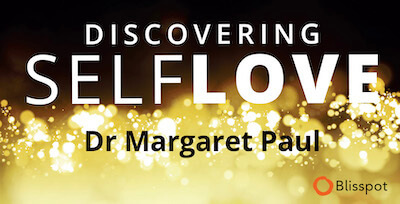Most people are not conscious of when they are in their wounded self. They generally don’t know when they are being needy, demanding, blaming, attacking, guilting, and so on. And, they often don’t accurately remember what they said and did while operating from their wounded self.
Therefore, trying to talk with someone close to you – a partner, a parent, a friend – about a difficult or painful situation after the fact generally doesn’t get anywhere, and may lead to more conflict.
The challenge is to respond in the moment…
However, we often don’t know what to say in the moment because we have rarely seen people speak up in the moment from their loving adult.
For example, let’s say your mother is making a statement that feels to you like a guilt-inducing statement. What are some of the things you can say to take loving care of yourself?
“Mom, are you trying to make me feel guilty?” “Mom, it sounds like you want me to feel guilty. Is that your intent?”
If she says, “No,” then you can say, “Good! I’m glad to hear that. It sure sounded that way to me, and it makes me sad to think that you would want me to feel guilty.”
How would your inner child feel if you spoke up for yourself like that?
You can use the same kind of statements for many different situations:
- “Are you blaming me for your feelings?”
- “It sounds like you are trying to intimidate me. Is that your intent?”
- “It sounds like you are telling me that it is my duty to have sex with you. Is that what you are saying?”
- “Right now, it feels to me like you are pulling on me for my attention and approval. Is that accurate?”
- “It feels to me like you see me as an object to be used for your gratification. Is that what you are meaning to imply?”
- “When you say you want that, it sounds like you are expecting me to buy it for you. Is that your expectation?”
- “It sounds like you are telling me that you can’t be happy unless I change – that your happiness is my responsibility. Is that what you are saying?”
- “When you complain like this, it sounds like you want my sympathy and agreement. Is that what you are wanting?”
- “When you talk on and on about yourself, it sounds like you are thinking that what you have to say is important and what I have to say isn’t. Is that what is happening here?”
- “When you are silent and non-responsive to me, it seems to me that you are trying to punish me for not giving you what you want. Is that your intent?”
- “When you say you are going to do something and then you don’t, it feels to me like you are being passive-aggressive. Is that accurate?” You get the idea. When you speak up at the moment, naming your experience of what is happening and asking if this is accurate, your child will likely feel very important to you. And, you have a much better chance of the other person getting what you are experiencing than if you say it after the fact. If they deny your experience, as in the above example with Mom, you can say you are relieved to hear it – and the guilting, blaming, etc. will likely stop for that interaction.
If they get defensive, you can also name that with a question:
- “It sounds to me like defending yourself right now is really important to you. Is that accurate?”
The more you name what you experience as their intent, the better chance there is of having a clear interaction.








